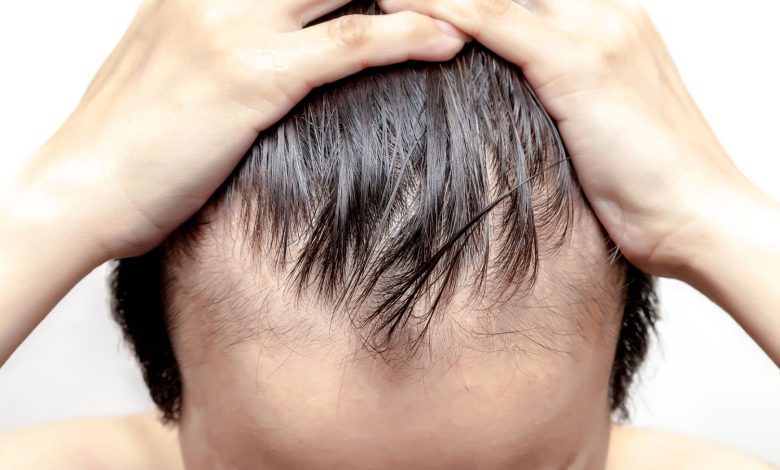Does Hair Replacement Have Any Side Effects?

Hair loss is a common concern affecting millions worldwide, prompting many individuals to explore various hair restoration options. Among these, hair replacement procedures have gained significant popularity due to their transformative results and minimally invasive nature. If you’re considering such treatments, understanding whether hair replacement has any side effects is crucial to making an informed decision. This comprehensive guide aims to shed light on the potential side effects associated with hair replacement procedures, helping you navigate your options confidently.
What Is Hair Replacement?
Understanding Hair Replacement Procedures
Hair Replacement in Abu Dhabi encompasses a variety of techniques designed to restore hair density and improve appearance. These procedures range from surgical methods like hair transplants to non-surgical options such as scalp micropigmentation and hair systems. The goal is to provide a natural-looking solution that enhances self-confidence and quality of life.
Types of Hair Replacement Techniques
- Surgical Hair Transplantation: Involves relocating hair follicles from a donor area to bald or thinning regions.
- Non-Surgical Hair Systems: Includes the use of custom hairpieces or wigs that blend seamlessly with natural hair.
- Scalp Micropigmentation: Uses pigment deposits to create the illusion of hair density.
Understanding these options is essential, as each comes with its own set of considerations regarding side effects and outcomes.
Common Concerns About Side Effects in Hair Replacement
Are Side Effects Typical?
While hair replacement procedures are generally safe and effective, it’s important to acknowledge that, like all medical treatments, they may carry potential side effects. These side effects can vary based on the method used, individual health conditions, and the expertise of the practitioner.
Why Do Side Effects Occur?
Side effects may occur due to factors such as the body’s response to the procedure, the use of anesthesia, or the condition of the scalp and hair follicles. Proper planning, technique, and post-procedure care significantly influence the likelihood and severity of side effects.
Potential Side Effects of Hair Replacement Procedures
Minor and Temporary Side Effects
Most side effects associated with hair replacement are minor and tend to resolve within days or weeks after the procedure. These include:
- Swelling and Inflammation: Mild swelling around the treated area is common and usually subsides quickly.
- Redness and Tenderness: The scalp may appear red and feel tender after the procedure.
- Itching and Discomfort: Some discomfort and itching are normal as the scalp heals.
- Scalp Sensitivity: Temporary sensitivity may occur, but it generally diminishes over time.
Rare but Possible Side Effects
While less common, certain side effects may require attention:
- Infection: Though rare, infections can occur if proper hygiene and aftercare are not maintained.
- Bleeding and Bruising: Minor bleeding or bruising may happen during or immediately after the procedure.
- Numbness or Loss of Sensation: Temporary numbness in the treated area might occur due to nerve contact.
- Unnatural Appearance: If the procedure isn’t performed properly, results may appear less natural, necessitating corrective procedures.
- Allergic Reactions: Allergic responses to anesthesia or topical medications are uncommon but possible.
Long-Term Considerations
Most side effects are short-term, but some patients may experience prolonged issues such as:
- Scarring: Especially with surgical methods, scarring can vary based on individual healing.
- Follicle Shock Loss: Temporary shedding of transplanted or existing hair in response to trauma.
- Altered Hair Growth Pattern: In some cases, new hair may grow in unintended directions or density.
How to Minimize Side Effects
Choosing a Skilled Practitioner
Selecting an experienced and qualified specialist is crucial to ensure proper technique, reduce risks, and achieve natural results. A thorough consultation helps to plan the procedure carefully.
Following Post-Procedure Instructions
Adhering to recommended post-treatment care, including medication, hygiene, and activity restrictions, minimizes the risk of side effects.
Maintaining Overall Health
Good health and proper scalp care before and after the procedure support optimal healing and reduce complications.
Who Is an Ideal Candidate for Hair Replacement?
Suitability Factors
Ideal candidates typically have realistic expectations, good overall health, and sufficient donor hair for transplantation. Addressing underlying conditions like scalp infections or dermatological issues before proceeding can also influence outcomes.
Importance of Consultation
A comprehensive assessment with a specialist helps determine the most suitable technique and prepares you for potential side effects, ensuring transparency and preparedness.
Frequently Asked Questions (FAQs)
1. Does Hair Replacement Have Any Side Effects?
Yes, like any medical procedure, hair replacement can have side effects, mostly minor and temporary. Proper technique, aftercare, and choosing an experienced practitioner help minimize these risks.
2. How Long Do Side Effects Usually Last?
Most side effects such as swelling, redness, and tenderness resolve within a few days to weeks. Rarely, some issues like scarring or numbness may persist longer but are generally manageable.
3. Can Side Effects Be Prevented?
Many side effects can be reduced or prevented through careful planning, skilled execution, and strict adherence to post-procedure care instructions.
4. Are There Any Long-Term Side Effects?
Long-term side effects are uncommon but can include scarring or altered hair growth patterns if complications arise. Regular follow-up and proper scalp care are vital for maintaining results.
Conclusion
Hair replacement offers a promising solution for individuals seeking to restore their hair and confidence. While the procedure is generally safe, understanding whether hair replacement has any side effects enables you to take proactive steps towards a smooth recovery and satisfying results. By choosing qualified professionals, following proper post-care guidelines, and maintaining good scalp health, most side effects can be effectively managed or avoided. Always consult with a specialist to tailor the treatment to your unique needs and ensure optimal outcomes.




